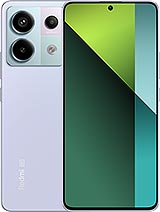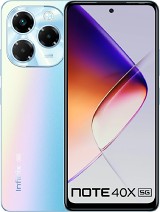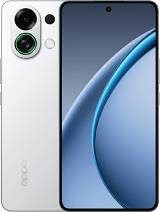iQOO Z9s alternatives
Tap above to see alternatives.
Redmi Note 13 Pro alternatives
Tap above to see alternatives.
Redmi Note 13 Pro

Redmi Note 13 Pro
-
Snapdragon 7s Gen 2
4 nm
-
5100 mAh
67W
-
6.67"
1220x2712 pixels
-
200 MP
4K@30fps
- Specs
4x2.5 GHz Cortex-A78
4x2.0 GHz Cortex-A55
4x2.40 GHz Cortex-A78
4x1.95 GHz Cortex-A55
8GB 256GB (UFS 2.2)
12GB 256GB (UFS 2.2)
8GB 256GB (UFS 2.2)
12GB 256GB (UFS 2.2)
12GB 512GB (UFS 2.2)
16GB 512GB (UFS 2.2)
f/1.8, (wide), 1/1.95", 0.8µm, PDAF, OIS
2 MP
f/2.4, (depth)
f/1.7, 23mm (wide), 1/1.4", 0.56µm, multi-directional PDAF, OIS
8 MP
f/2.2, 118˚ (ultrawide)
2 MP
f/2.4, (macro)
1080p
1080p@30/60/120fps
f/2.5, (wide), 1/3.0", 1.0µm
f/2.4, (wide), 1/3.06", 1.0µm
SIM1: Nano, SIM2: Nano
SIM1: Nano, SIM2: Nano
8 5G bands
n1, n3, n5, n8, n28, n40, n77, n78
10 5G bands
n1, n3, n5, n8, n28, n38, n40, n41, n77, n78
In this performance comparison, the iQOO Z9s with its Mediatek Dimensity 7300 (4nm) performs better than the Redmi Note 13 Pro with the Qualcomm Snapdragon 7s Gen 2 (4nm), thanks to superior chipset efficiency.
Both phones launched with Android 14 and will get updates until Android 16. Both phones are expected to receive security updates until around 2027.
Both iQOO Z9s and Redmi Note 13 Pro feature AMOLED displays, offering vibrant colors and deeper blacks. Both smartphones offer the same 120 Hz refresh rate. Both devices deliver the same brightness level at 1800 nits. Notably, Redmi Note 13 Pro offers a higher screen resolution, resulting in sharper visuals and more detailed content.
iQOO Z9s comes with a larger 5500 mAh battery, which may offer longer usage on a single charge. Redmi Note 13 Pro also supports faster wired charging at 67W, compared to 44W on iQOO Z9s.
iQOO Z9s offers better protection against water and dust with an IP64 rating.
¹ Scores can vary even with the same chipset due to RAM, thermals, and software optimization.











